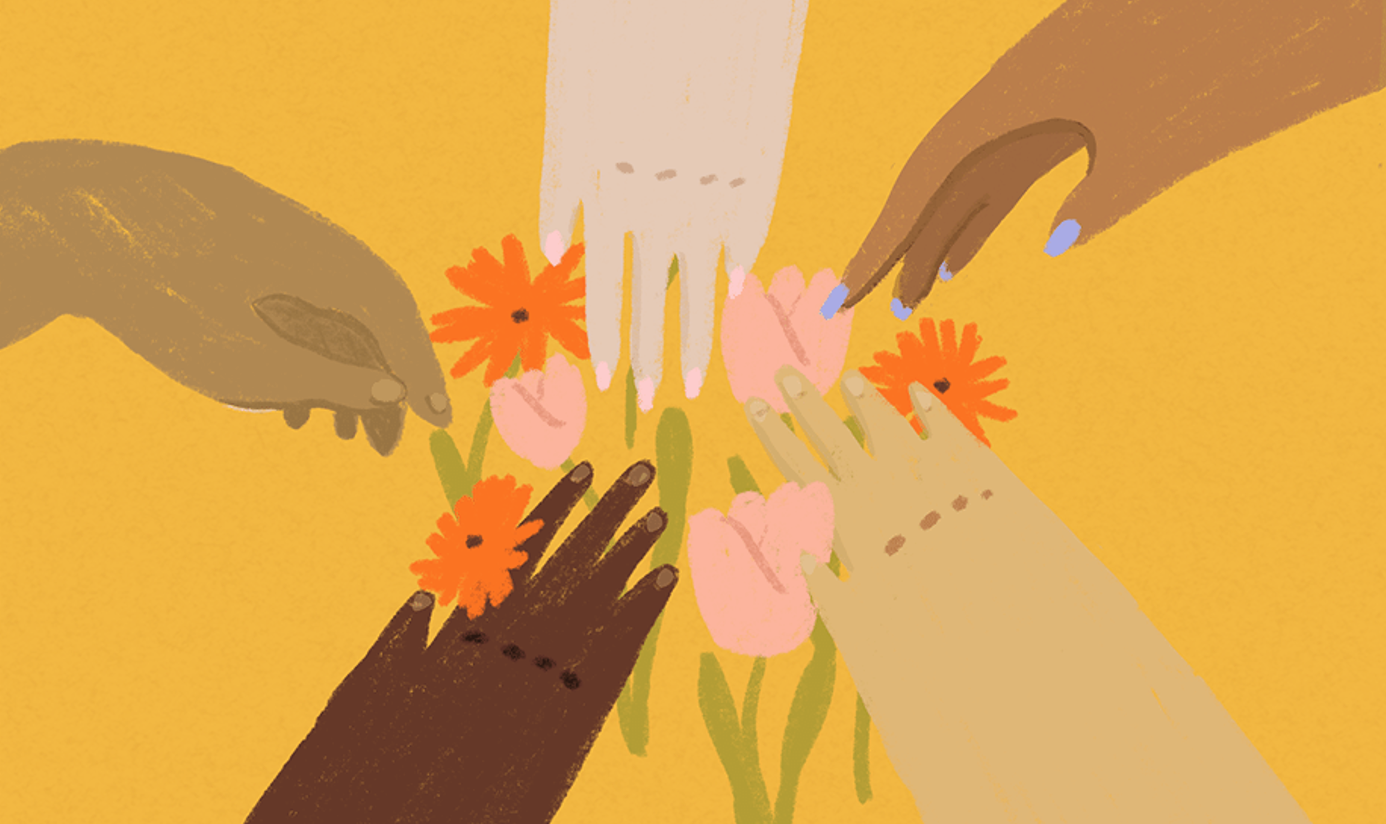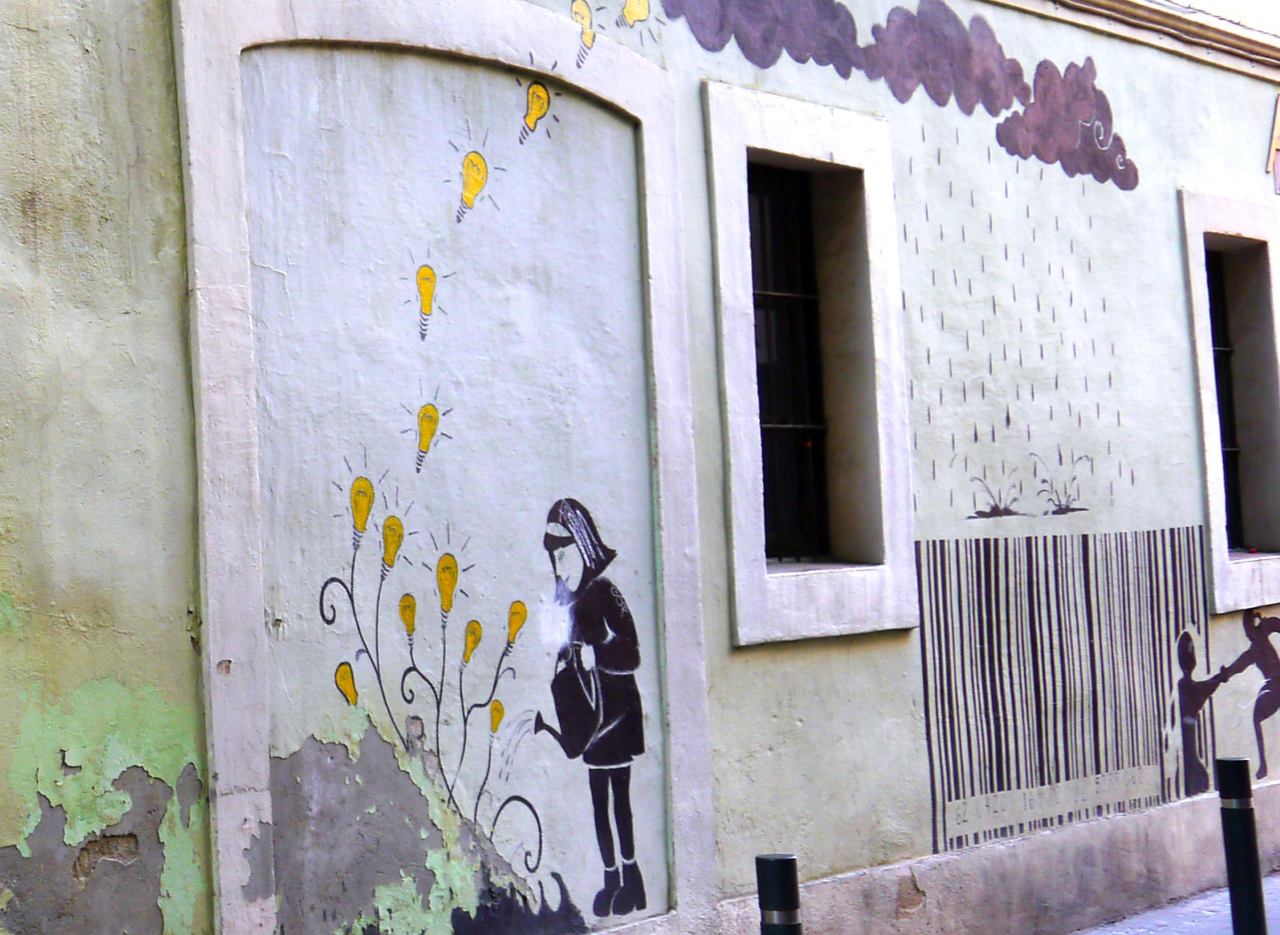If we are to accept degrowth in wealthy nations as the only sane and just response to the deterioration of the planetary biosphere, how should we reorganize care and reconceptualize health? We know that a degrowth transformation will require a fundamental reorganization of societal structures underlying growth-focused economies in the Global North. The structures dedicated to our health needs and providing us with care are no exception.
Commons Network is a collaboratory for this social and ecological transition. We bring together people and ideas and provide tools and insights for social movements, governments, and NGOs. We explore new models for the economy and society to collectively transform the system and shape a caring and just future. In our new booklet Living well on a finite planet - Building a caring world beyond growth, we explore what it means for our care structures and health imaginaries to move beyond growth, towards a vision for a society that is centered around care, autonomy, and sufficiency, i.e., degrowth. We looked into ‘caring commons’, and the learnings that can be derived from their underlying values and practices in our pursuit of creating a caring society beyond the hegemony of growth. As it turns out, caring commons contain various facets of degrowth. We found that much of what degrowth envisions is already in the making in places where commoning practices are flourishing.
Commons can be understood as social structures of citizens who are self-organizing in a collective way around certain needs within their community, such as the need for food, energy, housing, but also knowledge and — indeed — care. We refer to the last as caring commons, where the process of forming commons around our need for care is referred to as ‘commoning care’.
In caring commons, autonomy and self-reliance are approached collectively. Human health is understood holistically, with a focus on promoting community solidarity in caring endeavors.
Organizing care as a commons requires an ability to think outside the box. Citizens concerned with caring commoning activities stressed the broad scope of their work and the importance of reasoning from the unstructured yet burgeoning real world of care recipients, rather than from the structured system. Moreover, since commons always remain locally grounded, they can integrate a demand for care with other human needs crucial for people’s well-being, such as the need for proper housing, enough green spaces, and clean energy. As such, commons play a big role in making the caring system needs-driven and integrative.
When discussing what makes a caring commons successful, fostering strong collaboration with both formal and informal organizations, was stressed as fundamental. To achieve this, networks must establish a culture of trust and mutual respect, where tasks are divided based on each parties’ strengths and capabilities in a supportive manner.
Paradoxically, similar to the shift in approach from specialization to integration, caring commons’ shift in focus from competition to collaboration formed a key challenge when partnering up with other formal organisations. It clashed with market dynamics still prevalent in today’s Dutch healthcare system of efficiency and productivity.
Meanwhile, caring commons can in fact improve the efficiency of the formal healthcare system, since many problems are already solved at the ‘frontside of the system’.
Through organizing care through commons, people can become active participants in building the caring conditions in which they want to live. Citizens can take on the role of care recipients when they need care, but also assume the role of care providers when they have the capacity to do so effectively. In this way, care is turned into a provisioning service that creates wealth for the community as a whole in a reproductive way, rather than as a service exchanged from a provider to a receiver. Acknowledging and responding to our need for reciprocity is a crucial feature of caring commons.
All of this changes the dynamic between the caretaker and care receiver. The relationship is now characterized by a sense of meaning and a feeling of responsibility. Building in this, we know that a unique aspect of commons is that they are self-governing. Decisions are made by those affected by them, as much as possible. Putting such a ‘bottom-up’ approach to governing care in practice means ensuring local support (draagvlak, in Dutch) and a sense of ‘collective ownership’ (collectief eigenaarschap) within the community. The aim is to make a caring commons truly stewarded by those living within the community so that it becomes embedded within the local neighborhood.
In order for citizens’ initiatives to flourish, it is essential for the projects to maintain their small scale and to stay locally grounded. Meanwhile, many citizens’ initiatives have good connections to other such programs within the region or at the national level. In essence, the initiatives are expanding and enriching. Rather than ‘scaling-up’, they are ‘scaling-out’ through building distributed networks of knowledge and skills exchange, both at the regional and national level.
All of this teaches us more on how the spirit that drives acts of commoning stands in direct opposition to growth-centered normality. Recentering our economy around reciprocal caring practices means moving it away from transactional ones. A system that stimulates citizens to feel a sense of responsibility for maintaining the reproductive wealth of their local community is radically different from a system that promotes individuality and productivity. Nurturing our interdependences and vulnerabilities and strengthening our community bonds means rejecting a society that treats people as competitive and selfish beings. As such, caring commoning practices are prefiguring a socioecological transformation that moves us beyond growthism.
We believe that a care-centred degrowth transformation happens at two levels. The first level concerns the way we think about health, well-being and progress. The second level concerns the way we organize.
If economies are to degrow, we need to move towards an ecologically centered understanding of human health in line with what is known as planetary health thinking. It means recognizing our interdependences, also extending to the non-human realm, and embracing care as an ethic of non-exploitation, not only towards each other but also towards the rest of the living world.
We saw that commoning practices promote a shift to more community-centered ways of living that are more place-based, where caring becomes embedded in patterns of social relationships and health is understood in a more holistic way. Although we are not there yet, caring commoning can help us to move towards the ethic of planetary health.
Reconceptualizing well-being and health at the individual level implies changing the way we measure societal progress, too. If we are to reorient our society around care, autonomy and sufficiency, GDP forms a misleading and dangerous progress indicator. GDP was never meant as an indicator for human welfare and it should be abolished as such as fast as possible. By focusing solely on the ‘productive’ practices of the economy, we neglect what can be called the ‘reproductive’ practices: acts of unpaid care work that we all perform to sustain ourselves, our households, our communities, and our natural environment, of which the majority is still done by women. (Eco-)feminist scholars also refer to these acts as being ‘life-affirming’, and have long been calling for an integration of reproductive unpaid care work in how we see and measure the economy. In a care-centred degrowth transformation, we need such more comprehensive indicators that recognize reproductive care work, both in the form of communing or taking place in the domain of the household, as fundamental for economic and societal well-being.
A care-centred degrowth-transformation requires radical policies rooted in political courage that recognize and strengthen what already exists in the interstices of today’s growth-focused societies. Examples of policy strategies that can create more space for degrowth-oriented infrastructures, including caring commoning practices, are:
A care income supplemented by shortened working hours offers people the necessary space and means to take care of each other and the living environment. This space is currently under serious pressure. Reducing working hours prevents the burden of informal care work from falling disproportionately on women and enables a decoupling of livelihood from wage work.
Degrowth implies the creating of an economy where need-fulfilling services are put centre stage, where money is used as a means rather than an end in itself. Caring commons inhabit a crucial space within our economy for doing so. One way to use money as a tool for strengthening and promoting the caring commons and for shaping the path to a careful degrowth transformation is the introduction of time banks. We propose the introduction of caring time banks, which would be specifically devoted to caring activities. Moreover, local community currencies that contribute to constraining the circulation of money within a community can help to scale back and relocate economic activity. This would mean expanding and strengthening the current system of financing healthcare with local financing schemes at the community level.
Public-Collective Partnerships (derived from the well-known Public-Private Partnerships) are collaborations between public institutions and commons to co-produce ideas and policies, and deliver public goods and services collectively. We deem PCPs an important policy vehicle to enable citizens to participate in a meaningful and structural way in caring communitarian commons practices. Crucially, ambitious and well-funded public institutions will be an imperative for successful and strong PCPs.
The degrowth-promoting policies discussed above are highly ambitious and urgently needed. Indeed, no degrowth advocate would claim that a degrowth transformation will come easily. It will most certainly continue to create resistance from those decision-makers and politicians who currently benefit from upholding the growth mentality. But this is the case with any transformation: it is meant to disrupt contemporary power structures. Meanwhile, we hope that degrowth advocates will find comfort and hope in the fact that the spirit of degrowth is already being put into practice by communities in niches of the current growth regime. It is up to us to help them flourish.

Our relationships with time are crucial to what makes us human, as we learn from the past and are motivated by our future. So, what are we to do when our ability to plan is taken away and our perception of time becomes distorted?

Time, as we know it, is largely a social construct. With so much of our autonomy taken away by the pandemic—particularly our freedom of movement and, for many of us, ability to earn an income— we’ve had to do what humans always do and make do with what we have, get creative, and focus our time and energy on the reciprocal networks of care that are so essential for our survival.

The third annual Global Degrowth Day on the theme of care will take place on 5th June 2021. Here, Corinna Dengler and Giacomo D'Alisa expand on the centrality of care to degrowth. Degrowth is an activist and political claim supported by academic research that aims at creating global human well-being within planetary boundaries. Degrowth problematizes interlinking systems of domination ...